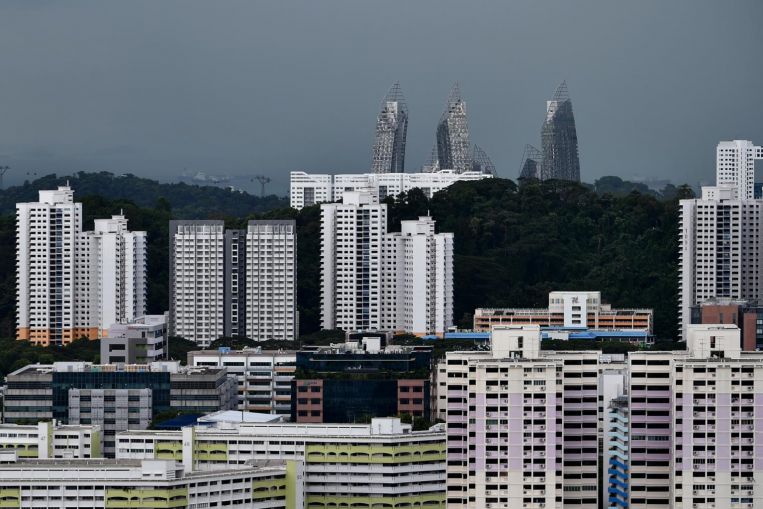SINGAPORE (THE BUSINESS TIMES) – More market observers are expecting the Singapore government to step in to cool the private residential market, while spiking construction costs overtook economic woes as the top potential risk factor that may temper sentiment in the next six months.
That’s according to the latest Real Estate Sentiment Index published by the National University of Singapore Real Estate (NUS+RE), which represents the Department of Real Estate and the Institute of Real Estate and Urban Studies at the university.
The quarterly survey polled about 40-50 senior executives in the real estate sector who are closely following the pulse in the markets.
One risk factor that rose significantly include the potential risk of government intervention to cool the market, which jumped to 44.7 per cent in the fourth quarter of 2020, up from 19.2 per cent in the previous quarter.
The other was the possible risk of a real estate price bubble or excessive speculative activities which increased to 25.5 per cent, from 5.8 per cent in the third quarter.
Separately, the proportion of respondents who indicated concerns on the rising costs of construction rose to 85.1 per cent in Q4, versus 76.9 per cent in Q3.
“Construction costs are expected to increase in the next six months due to shortage of manpower, supply disruptions of building materials and tighter regulations imposed on construction sites. This could potentially lead to persistent demand-supply mismatch in the near term,” one respondent said.
In contrast, the proportion of respondents who indicated job losses/a decline in domestic economy as a potential risk factor fell to 61.7 per cent from 100 per cent, while those who were worried about the slowdown in the global economy declined to 76.6 per cent from 96.2 per cent.
In terms of future launches and sales, about 58 per cent of property developers surveyed by NUS+RE expected prices to be moderately higher, while 29 per cent expected prices to remain the same.
Additionally, about 54 per cent of developers expected the number of units to come to the market to be moderately or substantially more in the next six months.
The study’s composite sentiment index, a derived indicator for the overall real estate market sentiment, continued to climb upwards to 6.5 in Q4 from 5.4 in Q3, indicating an optimistic outlook on the market heading into 2021, NUS+RE noted.
Join ST’s Telegram channel here and get the latest breaking news delivered to you.
Source: Read Full Article
